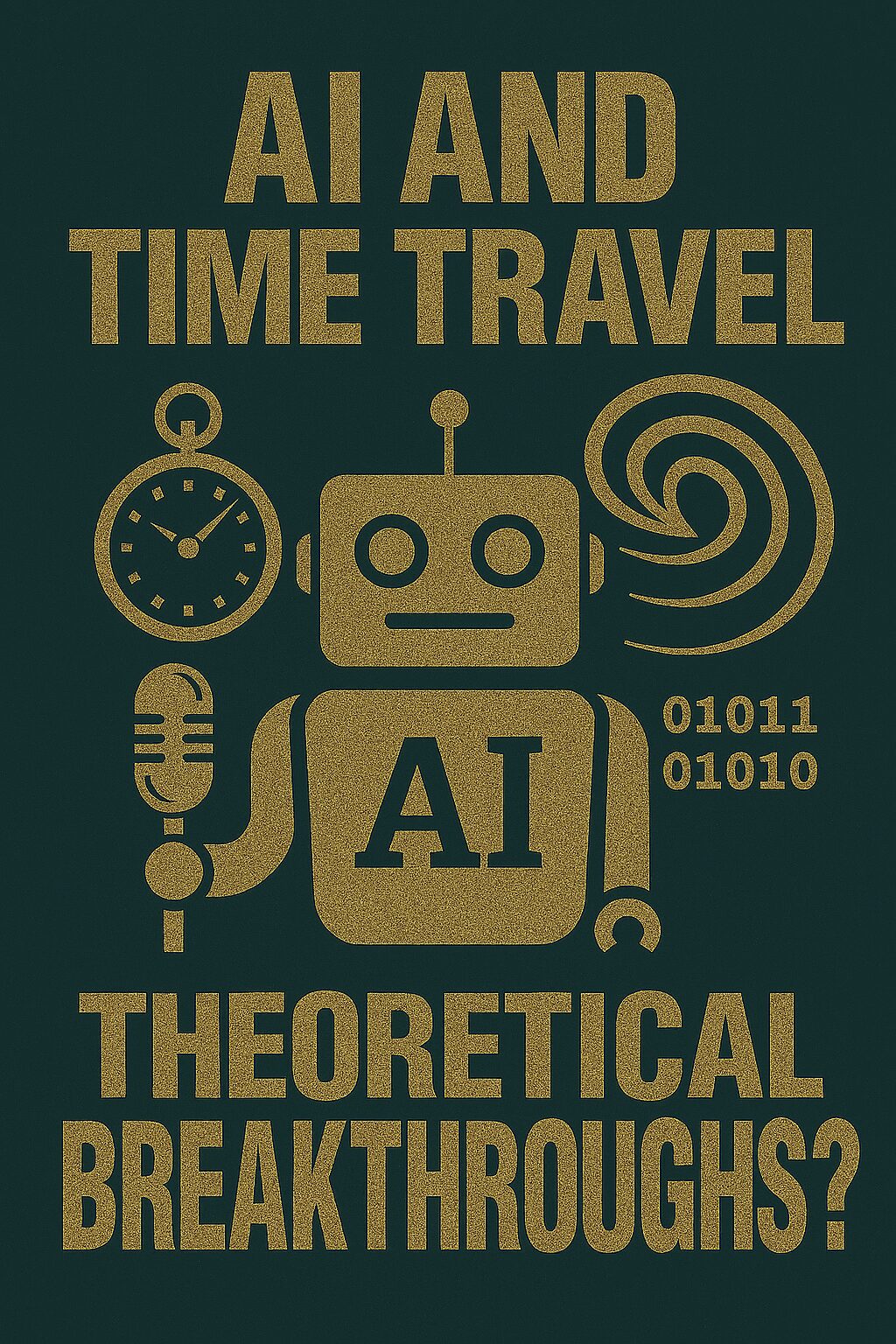Introduction: When Algorithms Meet the Arrow of Time
Time travel has long captivated scientists and storytellers alike. From Einstein’s relativity to Hawking’s paradoxes, the concept of moving through time remains one of physics’ greatest mysteries. But in 2025, artificial intelligence (AI) is emerging as a powerful tool in the quest to understand—and perhaps one day achieve—time travel. By simulating complex equations, modeling alternate realities, and decoding temporal data, AI is pushing the boundaries of what’s theoretically possible.
🤖 What Is AI’s Role in Time Travel Research?
AI in time travel research refers to the use of machine learning, quantum simulation, and data modeling to explore temporal phenomena. These systems help scientists:
- 🧪 Analyze spacetime curvature and wormhole stability
- 📊 Model closed timelike curves (CTCs) and paradox resolution
- 🧬 Simulate quantum entanglement across time
- 🗺️ Visualize alternate timelines and multiverse scenarios
- 📡 Predict temporal anomalies in astrophysical data
According to , AI cannot build a time machine yet—but it’s proving invaluable in exploring the theoretical frameworks that might one day make it possible.
📈 How AI Is Advancing Time Travel Theory in 2025
| AI Application | Impact on Time Travel Research |
|---|---|
| 🧠 Quantum Simulation | Models entangled particles across time dimensions |
| 📊 Wormhole Stability Analysis | Tests Einstein-Rosen bridge viability under exotic matter conditions |
| 🧬 Paradox Resolution Modeling | Explores solutions to grandfather and bootstrap paradoxes |
| 🗺️ Timeline Visualization | Creates simulations of alternate historical outcomes |
| 📡 Temporal Data Mining | Detects anomalies in cosmic microwave background and black hole data |
These tools are used by theoretical physicists, quantum researchers, and cosmologists to test hypotheses that were once purely speculative.
🧪 Real-World Applications in 2025
- 🧠 AI models simulate time dilation effects near black holes
- 🧬 Quantum AI systems explore retrocausality and temporal entanglement
- 📊 Neural networks analyze historical data to model alternate outcomes
- 🛰️ Space agencies use AI to detect time-based anomalies in deep space signals
While these applications don’t enable physical time travel, they offer new insights into how time behaves under extreme conditions.
⚠️ Challenges and Ethical Considerations
Despite its promise, AI-driven time travel research faces hurdles:
- 🔐 Data interpretation risks due to quantum uncertainty
- 🧮 Philosophical debates over determinism and free will
- ⚖️ Ethical concerns about simulating alternate histories or future events
- 🛠️ Limitations in current quantum computing infrastructure
Solutions include transparent modeling protocols, interdisciplinary collaboration, and ethical oversight in temporal simulations.
🛡️ How to Scale AI for Temporal Research
✅ Key Strategies:
- Invest in quantum AI platforms for spacetime modeling
- Promote ethical standards for alternate timeline simulations
- Support open-source temporal research frameworks
- Align AI with theoretical physics and cosmology communities
- Educate researchers on AI’s limits and interpretive risks
🔑 SEO Keywords to Target
- AI and time travel 2025
- theoretical breakthroughs in time travel
- artificial intelligence spacetime modeling
- quantum simulation time travel
- wormhole stability AI
- alternate timeline visualization
- retrocausality and AI
🧭 Conclusion: Intelligence Meets Infinity
In 2025, AI isn’t just solving problems—it’s exploring paradoxes. While time travel remains theoretical, artificial intelligence is helping humanity decode the mysteries of time itself. The future of temporal exploration isn’t just science fiction—it’s algorithmic.

